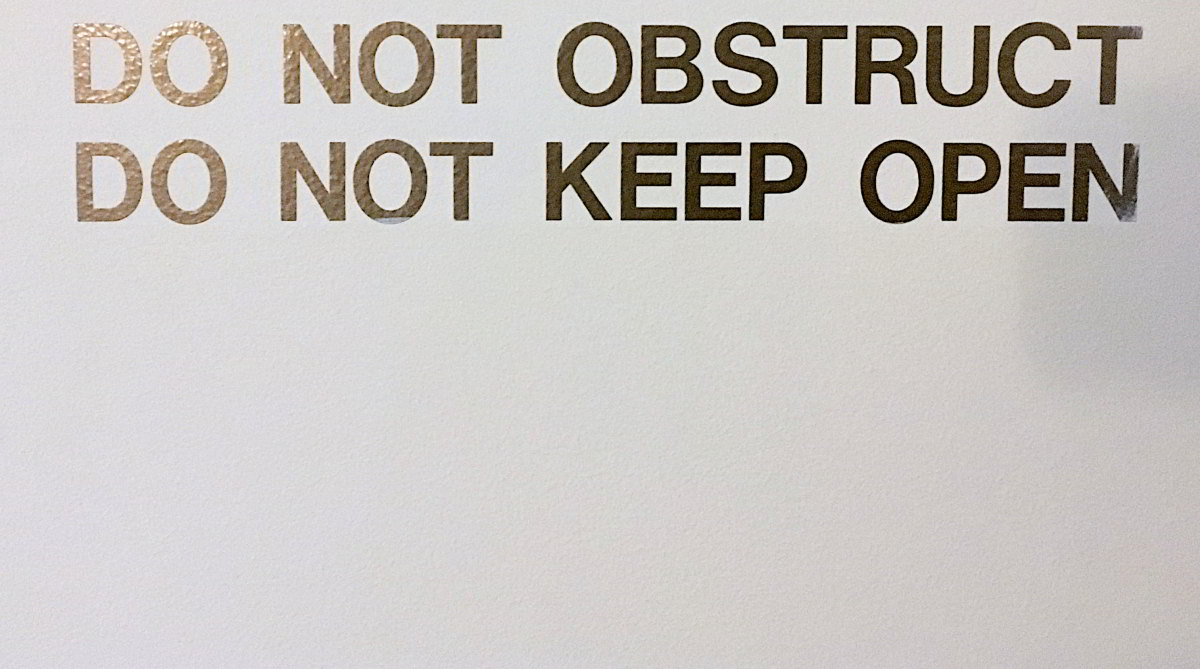“Whenever you’re in conflict with someone, there is one factor that can make the difference between damaging your relationship and deepening it. That factor is attitude.”
We all face conflicts in life. Conflicts occur then people have different points of view, values, and principles. There is no way we can avoid conflicts. We can develop a healthy attitude toward conflict, however, that enables us to calmly view differences as opportunities for growth.

Healthy conflicts can trigger new ideas, stronger relationships, and more robust outcomes.
In order to engage in healthy conflicts and to achieve desired results, we need to be clear about what kind of relationships we want to establish with other people and how important the outcome is. I was recently struck by this question posed by a UU minister:
“Do we enter conversations with a question or with an assumption?”
If we begin any potential conflict with questions about what values are driving the other person’s behavior, we are more likely to end the conflict with a better relationship and a better outcome. Here’s a simple chart that may help to clarify and navigate whatever conflicts you confront:
|
|
Low Importance of Relationship |
High Importance of Relationship |
|
High Importance of Outcome |
Compete |
Collaborate |
|
Low Importance of Outcome |
Concede |
Compromise |
CONCEDE:
If neither the relationship nor the outcome is particularly important, then the best strategy is to concede whatever you can, accommodate the other person, and simply move on. It’s a waste of time to invest in a problem in which you don’t care who might be impacted or what the results may be.
COMPROMISE:
If the relationship is important, but the outcome is not important, then the best strategy is to find a compromise that satisfies as many of the other person’s values as possible without “compromising” your own values because the end results don’t really matter that much.
COMPETE:
If the outcome is important, but the relationship is not important, then the best strategy is to compete with maximal effort to satisfy all your values because you don’t care how the results impact the other person.
COLLABORATE:
If the outcome and the relationship are both important, then the best strategy is to collaborate as openly and genuinely as possible in order to create solutions that deepen relationships and maximize results for both parties.
In all of these situations, it’s important to understand as deeply and clearly as possible not only your own values and principles, but also the values and principles the other person holds dear.
That understanding requires you to listen without assumptions so that you can identify clearly the root cause and desired end-state of the conflict.
If you decide to concede, then you need to understand what values you are satisfying and which ones you may be putting at risk.
As the League of Nations crumbled after World War I, politicians tried to keep the peace by giving Hitler what he wanted to stop him from going to war.
They believed that when Hitler’s demands were satisfied he would stop his war machine.
Neville Chamberlain, the British prime minister, believed Hitler could be appeased by giving Czechoslovakia to Germany. That decision simply fueled Hitler’s ambitions. In this case, Britain and France failed to understand that conceding meant putting freedom, democracy, and autonomy at risk. Churchill finally stood up to the dictator and turned the tide of World War II.
As parents, even though the stakes are not nearly as high, we may choose to concede to certain demands of our children.
For example, if we continually concede to children’s demands for screen time in order to “keep the peace” for the moment, we may be creating an outcome that doesn’t benefit anyone.
If you decide to compete rather than concede, then you need to understand what you are willing to sacrifice and the price you are willing to pay for a “win.”
The primary purpose of sports team is to win. Athletes are willing to sacrifice many dimensions of their life to acquire the skills they need to play on a competitive team.
Teams are focused on the outcome of winning; the relationship with the other team is minimized. In fact, it is not atypical for coaches to demonize the other team to motivate its players to perform at their highest levels.
Businesses also operate in a highly competitive, global environment. They are primarily focused on quarterly, financial objectives.
Some businesses are even willing to engage in corrupt practices in order to “win” in the marketplace.
To be clear, competition can be a healthy choice and can serve many values.

Employees, however, are more motivated by contributing to a higher purpose than they are by defeating a competitor.
The bigger questions are:
- “What values are we trying to satisfy?”;
- “What objectives are we trying to achieve?”; and
- “What values are we willing to violate in order to achieve those objectives?”
In the military conflicts in which we have engaged since World War II, it seems to me we weren’t very clear or honest about our values or our objectives.
I just read a terrific book by George Packer, Our Man, a biographical masterpiece that discusses the role the mastermind Richard Holbrook played in Vietnam, Bosnia, and Afghanistan. His experiences lay out in great detail what happens when we don’t give adequate attention to those three questions. Roger Cohen recently wrote a column in the New York Times about the book and Richard Holbrook. I highly recommend both the book and the column.
If you decide to compromise, you need to understand what values are most important to you and which values are most important to the person with whom you are negotiating. In Congress these days, there seems to be no appetite for compromise. Partisan loyalty appears to be the most important value. Winning elections seems to be the most important objective, independent of principles or values.
Whether explicit or not, good marriages usually are a result of effective compromises.
Since the relationship ought to be highly important, it only makes sense to compromise when a particular outcome is not highly important. For example, one partner in the relationship may want to visit relatives on a vacation and the other partner may want to go on an adventure cruise. If the objective is to get away from the pressures of day-to-day living, there are many ways to compromise so that both partners achieve at least a few of their values. Having been married for almost 50 years, I can attest to the importance of compromise.
If you decide to collaborate, you need to understand the common values and objectives both parties are trying to achieve.
The goal of collaboration is to create innovative solutions that enable both parties to win and to grow.

For me, collaboration is usually the preferred choice, but it can only happen when both parties are clear and honest about their values and their objectives. If one party, for example, only values attention and affirmation and has the single objective of destroying another person’s achievements, then collaboration is impossible. On the other hand, if both parties seek to optimize the common good independent of their narcissistic aspirations, then it is possible to move forward in a positive direction.
On a geo-political level, collaboration has produced remarkable achievements. It was through the collaboration of many countries that we were able to form the United Nations after World War II. The European Union is a terrific example of how collaboration produced peace and prosperity throughout a continent that had been ravaged by competition for resources and control its entire history. The World Bank is another example of the benefits of collaboration. More recently, many nations came together to address the climate change challenges we are facing and attempted to form a Trans Pacific Partnership for world trade.

Intelligent organizations also leverage the power of collaboration.
Due to disruptive technologies, most business leaders view collaboration as the best way to enhance collective intelligence—the most essential differentiator is today’s constantly changing world.
On an individual level, we all benefit when there are people in our lives who are actively seeking ways to help us succeed. The questions we need to ask ourselves are 1) “How open am I to collaborating with others?”; and 2) “How many people would put me on their list of those who are actively seeking ways to help them succeed?”
For me, the main point is around clarity.
We need to honestly define what relationships and outcomes are most important to us. We need to clearly decide what strategy will best deepen our treasured relationships and achieve our desired outcomes, i.e. should we concede, compete, compromise, or collaborate. We also need to be clear about our most cherished values and specific objectives.
When values and objectives are not clearly stated, our strategies tend to be fuzzy. As a result, we end up destroying relationships and failing to achieve the outcomes we intended.
May we be honest in our efforts to find clarity in all the conflicts we encounter. And, as William James said, may we take a hard look at the attitudes we bring into a conflict.





Right on Ricky! Thank you my friend!
RonnyDonny